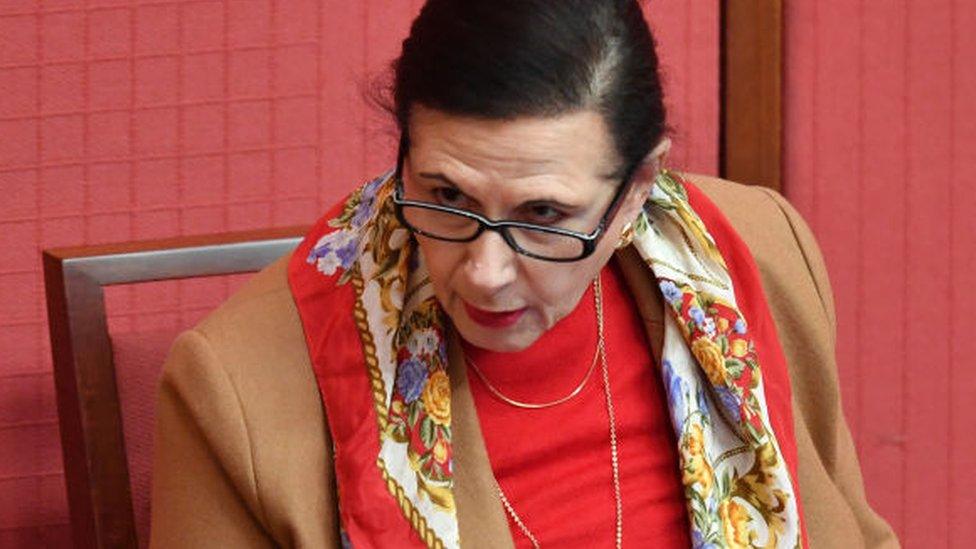Scott Morrison: Rise and fall of Australia's divisive pandemic leader
- Published
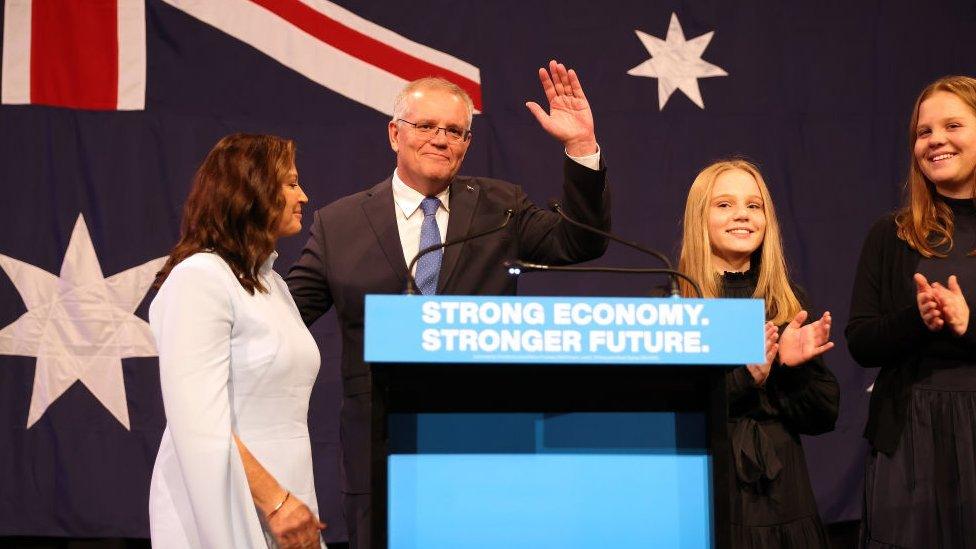
Scott Morrison has conceded election defeat and stepped down as party leader after four years in the job
Former Australian Prime Minister Scott Morrison says he will quit parliament, drawing the curtain on a 17-year political career defined by pragmatism, conservatism and numerous controversies.
Mr Morrison was the country's leader from 2018 to 2022, famously winning an against-odds election victory in 2019 that he dubbed "a miracle".
But support for his Liberal-National government collapsed as the pandemic wore on. Criticism also mounted over his policies on climate change and issues affecting women.
His personal unpopularity dominated an election campaign that was won by Labor's Anthony Albanese, the current prime minister. Mr Morrison kept his seat but stood down as leader of the Liberal party.
In an extraordinary scandal, it was revealed several months later that Mr Morrison had secretly appointed himself to additional ministries while PM. This led to his censure in parliament, a first for a former prime minister.
But Mr Morrison - nicknamed ScoMo - wasn't always considered a liability, building a reputation as a survivor and a shrewd political tactician before he ascended to the top job in 2018.
Rise to the top
The son of a police officer, Scott Morrison grew up in Sydney's beachside suburbs and was elected to a traditional heartland in the city's south.
The 53-year-old worked hard to forge an image as the proverbial family man who understood Australia's suburban values, often donning high-vis vests and a cap featuring his favourite rugby league team.
One of the country's leading religious conservatives, he is now closely connected to the Pentecostal movement. He married his wife Jenny when he was 21 and they have two children.
Mr Morrison has always been politically engaged and was a former state director for the Liberal Party. But he also held senior roles in tourism - he was a former managing director of Tourism Australia - before running for federal office in 2007 and finally entering the cut-throat political stage in Canberra.
He rose to national prominence for vigorously enforcing Australia's controversial approach to asylum seekers, including the Stop the Boats policy, as immigration minister in Tony Abbott's government.
Despite trenchant public criticism of the policy, Mr Morrison pushed on with his severe approach to the portfolio and built a reputation as a tough operator. He remained unfazed by specific accusations about the lack of transparency over what was happening in Australia's offshore detention centres.
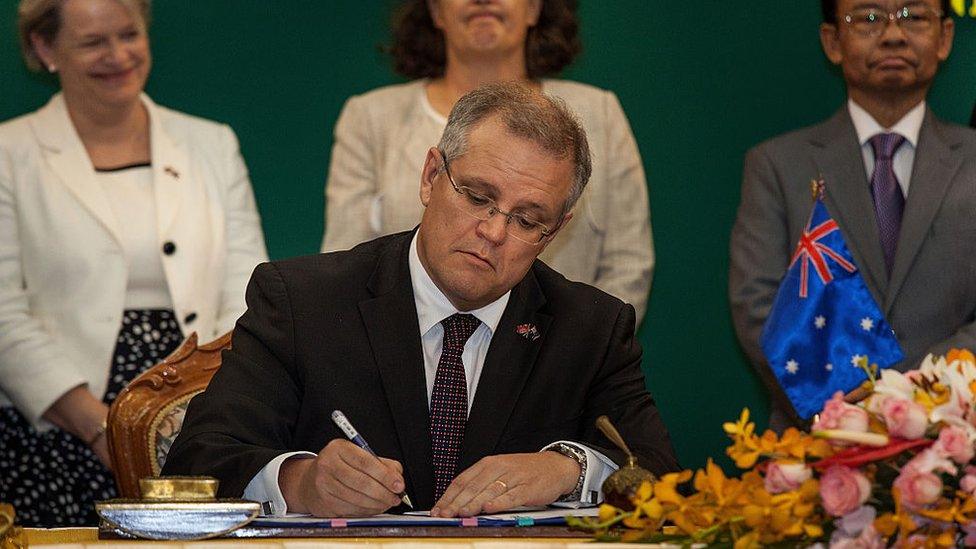
Scott Morrison signs a refugee resettlement deal with Cambodia in 2014, which ultimately resettled fewer than 10 people
He later took on portfolios in social security and treasury - where he was lauded for his competence, work ethic and clear communication.
He opposed the marriage equality bill but kept a low profile during that debate - he ultimately abstained, a sign of his characteristic pragmatic approach to his political career.
Mr Morrison entered the top job in 2018 after his predecessor, Malcolm Turnbull, was forced out by infighting within the government.
Time as prime minister
Scott Morrison was the first Australian prime minister in 15 years to have served a full three-year term.
His government's stewardship of the economy was at the heart of his 2022 re-election bid, with economic activity surpassing pre-pandemic levels and projected to grow a further 4.25% this year. Unemployment levels also dipped to 4% in 2022 - a rate unseen since 2008.
Australia's response to the Covid-19 pandemic - incredibly tight border controls, movement restrictions and free vaccinations - earned it the nickname Fortress Australia. But it had one of the lowest death rates globally, although the federal government shares credit for this with state governments.
Mr Morrison negotiated a landmark defence pact with the US and the UK in 2021, called Aukus. The agreement - widely seen as a joint effort to counter China's growing military might - re-aligns Australia more closely with the US.
But his tenure has been frequently controversial, including because of Aukus, which caused a diplomatic spat with France when he reneged on an earlier $37bn (£27bn) submarine deal with Paris.
The result was a bitter rift between Australia and France, culminating with French President Emmanuel Macron accusing Mr Morrison of lying to him. "I don't think - I know," the president famously told reporters.
Other rows - particularly within Mr Morrison's own party - saw many calling his character into question.
Government senator Concetta Fierravanti-Wells launched a blistering attack on Mr Morrison in March, accusing him of being "an autocrat" and "a bully with no moral compass" over internal party processes.
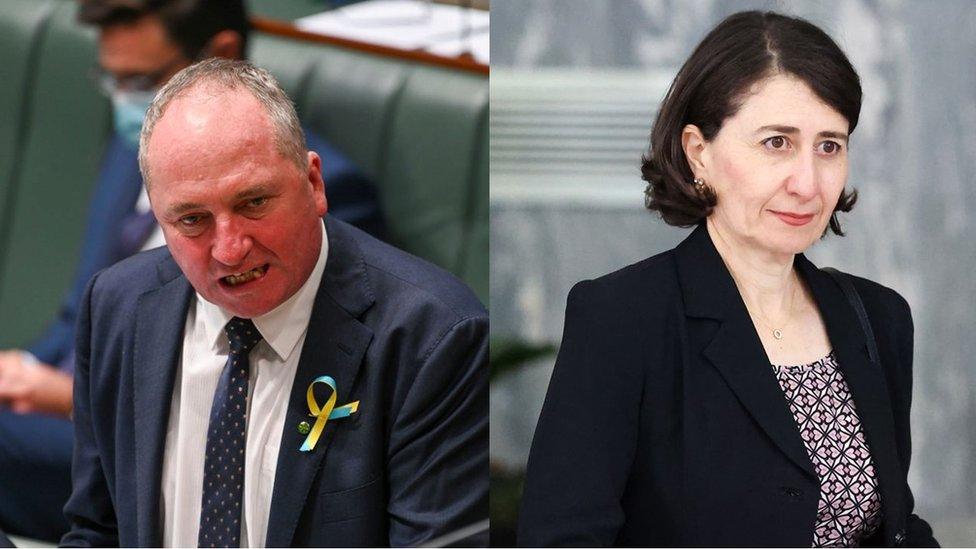
Text messages reportedly written by Deputy PM Barnaby Joyce and a former premier, Gladys Berejiklian, have been blows for Mr Morrison
And a leaked text message from Barnaby Joyce - written before he became Mr Morrison's deputy prime minister - labelled the leader a "hypocrite and a liar". Mr Joyce also wrote that he had "never trusted him".
A separate text exchange, reportedly between a party colleague and former New South Wales Premier Gladys Berejiklian, was also leaked to the media. Ms Berejiklian was said to have labelled the prime minister "a horrible person" who was untrustworthy. Ms Berejiklian later said she did not recall sending the message, but did not deny writing it.
During Australia's deadly Black Summer bushfires of 2019-20, the prime minister encountered a severe backlash when he went on a poorly timed family holiday to Hawaii.
News of the trip - which his office initially tried to avoid making public - forced Mr Morrison to cut the trip short and issue an apology.
"I get it that people would have been upset to know that I was holidaying with my family while their families were under great stress," he said.
The prime minister didn't fare much better when floods ravaged large parts of Queensland and New South Wales in March, drawing accusations of responding too slowly to declare a national emergency.
The fire and flood events - two of Australia's worst-ever natural disasters - again raised public anger over the government's climate targets, which are among the weakest set by rich nations.
Watch: Anger and trauma in Australia’s flood aftermath
Mr Morrison's government has also drawn fire for its treatment of women. Most prominently a former Liberal staffer, Brittany Higgins, alleged that a colleague had raped her in a ministerial office in 2018, and that the party had pressured her to stay silent.
It led to a landmark report that found a third of employees in Australia's federal parliament had been sexually harassed.
In the May 2022 election, the Liberals suffered a considerable swing against them and lost seats previously considered to be party heartland.
Mr Morrison described his loss as "humbling" but said the coalition government had made Australia stronger.
He had returned to the opposition backbench when the scandal of Mr Morrison's secret ministries became public in August 2022. Most ministers said they were unaware they had been sharing portfolios with Mr Morrison.
He was widely criticised - including by close colleagues - and censured in parliament. An investigation found his appointments were legal, and that he used his extra powers only once - to overrule a minister in a matter unrelated to the pandemic.
Mr Morrison defended his actions as "necessary" in "extraordinary times".
His decision to quit parliament, announced on Tuesday, has been long expected. Mr Morrison said he was leaving to take on "strategic advisory roles" across Asia, focusing on security matters.
"After having served in the parliament for more than 16 years, including almost four as Prime Minister during a very challenging time for our country, now is the time to move on," he said in a statement.
Related topics
- Published11 April 2022
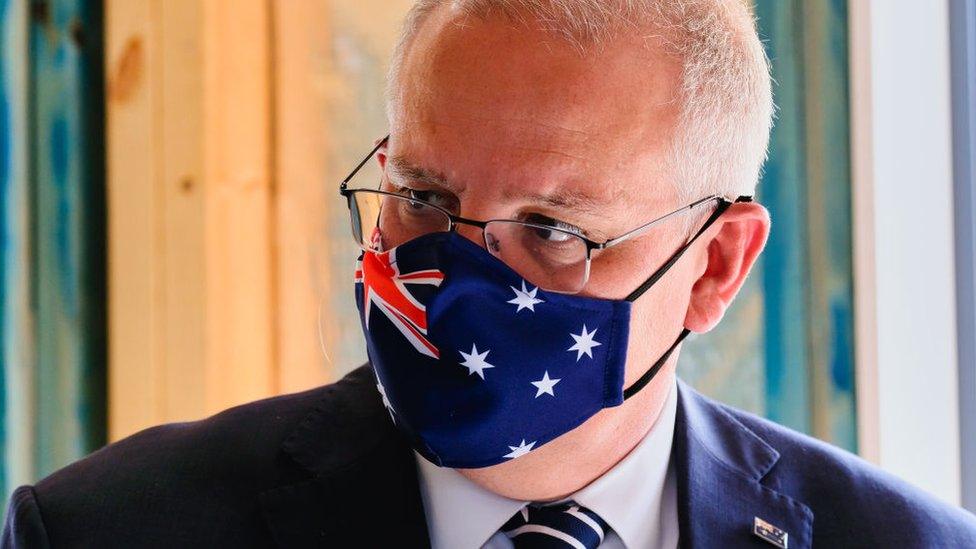
- Published19 May 2020
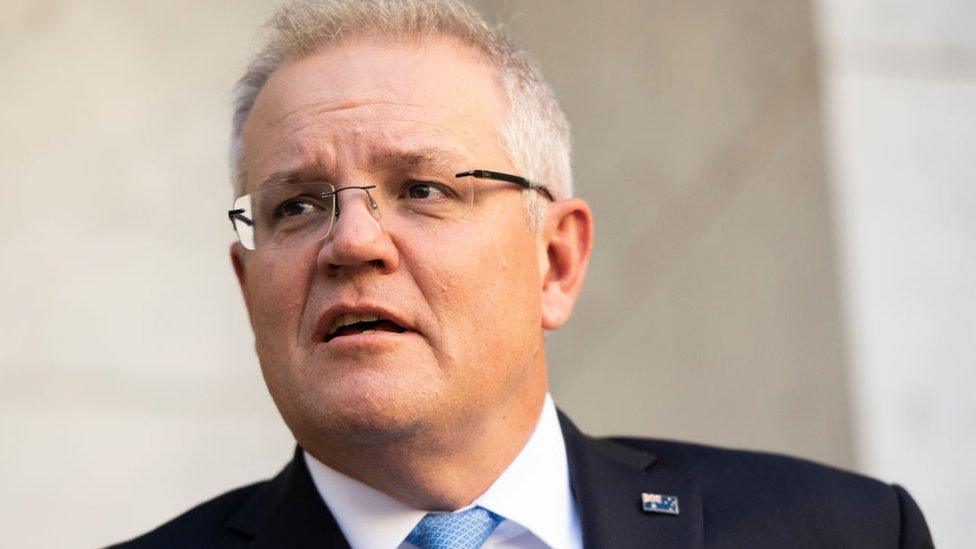
- Published15 March 2022
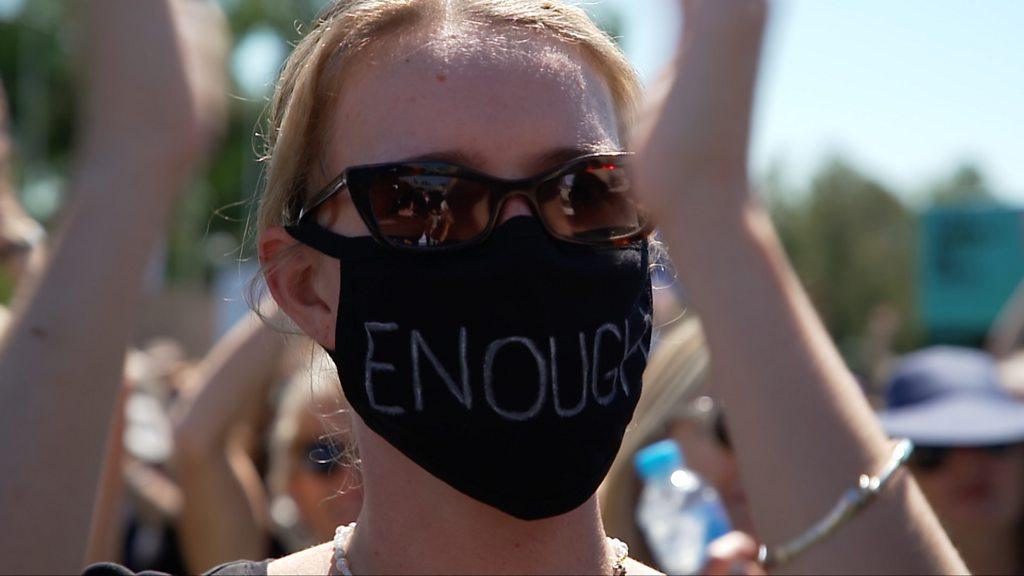
- Published30 March 2022
